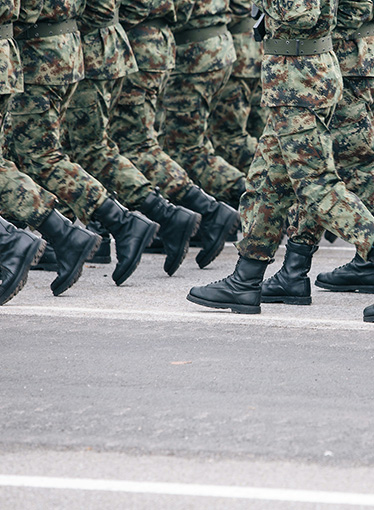Evacuations from High-Risk Locations Call +44 (0)1202 308810 or Contact Us →

Turkish and Syrian Troops Clash in Afrin
21 Feb 2018
In response to Turkey’s ongoing Operation Olive Branch, the Syrian regime has deployed troops to Afrin in order to assist Syrian-Kurdish militias which have been defending the region. At least one Turkish artillery attack targeted Syrian government forces, although casualty numbers remain unclear. Afrin is now the centre of a conflict between Turkish troops and two separate Syrian forces, backed by the US and Russia separately.
Key Points
- On 20 February 2018, Syrian regime troops entered Afrin to support Syrian-Kurdish militias defend the region from a Turkish offensive.
- At least one instance has been reported of Turkish artillery striking Syrian regime forces.
- Russian-backed Syrian forces are now cooperating with US-backed Kurdish forces against a NATO member’s armed forces and its supporting irregulars.
Situational Summary
Armed Conflict: In response to Turkey’s ongoing Operation Olive Branch, the Syrian regime has deployed troops to Afrin in order to assist Syrian-Kurdish militias which have been defending the region. At least one Turkish artillery attack targeted Syrian government forces, although casualty numbers remain unclear. Afrin is now the centre of a conflict between Turkish troops and two separate Syrian forces, backed by the US and Russia separately
Solace Global Comment
The attack on Afrin has potential repercussions beyond the immediate battle itself. Despite ongoing competition between Russia and the US on the global stage, proxy forces for both are presently engaged in combat alongside each other, opposing the conventional forces of Turkey. Turkey, a member of the US-led North Atlantic Treaty Organisation (NATO), has recently sought increased defence engagement with Russia, whilst intently pursuing regional objectives opposed by both parties. Whilst both the US and Russia have sought to create both political and physical distance from the battle, troops trained and supported by them have not been prevented from moving to the city and resisting the Turkish offensive.
A recent clash between US-backed Kurdish troops with their special forces advisors and Russian mercenaries known as the Wagnar Group, resulted in at least 100 fatalities amongst the Russians and their allies. Russian conventional forces have similarly responded with incredible violence when their forces have been directly threatened, generally against groups such as the Free Syrian Army, a rebel group presently supporting the Turkish offensive. The Turks have, overtly, deployed heavy armour, artillery, and air assets to the Afrin offensive, and are using an assortment of groups including radical Islamists and Al Qaeda affiliates to support their efforts. Syrian government forces have a record of frequently deploying chemical weapons at the tactical level, and against civilian targets.
Based on the aforementioned exchange between US-backed troops and Russian mercenaries, and the lack of fallout following it, it appears unlikely that any of the major powers on the periphery of the Afrin siege have a desire for significant escalation. Their involvement, however, inherently increases the potential for catastrophic violence in the Afrin region as each faction seeks to gain tactical advantage by escalating its use of force.
At present, it is believed that both Russian and US troops have remained remote from the fighting in Afrin, although the locations of Special Forces advisors are inherently difficult to monitor. The Russian advisory teams were reportedly withdrawn from the area immediately before the Turkish offensive. It is highly likely that this withdrawal was intended to coax Kurdish groups to admit Syrian forces into Afrin to support them. Now Syrian government and Kurdish troops are fighting alongside each other, it significantly increases the likelihood of further cooperation and integration beyond the immediate defence of Afrin. It is possible that, with the arrival of Syrian government forces, Russian advisers may re-enter Afrin in support of these forces, raising the potential of a direct exchange of fire between Russian troops and those of a NATO member.
A more significant risk to the wider region may be posed by Turkey’s stated intent to expand Operation Olive Branch to the entire length of the Turkish-Syrian border, with a particular focus on Manbij. This city, in another predominantly Kurdish region, is the home of a significant US military presence supporting Kurdish troops against the Islamic State. These same Kurdish troops were rapidly redeployed to Afrin following the launch of the Turkish offensive. Considering the US’ given purpose in Syria is the eradication of the Islamic State, and that Kurdish groups have been their most effective force throughout this effort, it is unlikely that the US will simply withdraw in the face of Turkish pressure. Direct conflict between the two remains unlikely, however alongside Turkey’s recent authoritarian behaviour, and near constant political spats with its European and US allies, this poses a significant risk to NATO unity. The impact of this may be felt further afield, not only in the Middle East, but also Eastern Europe where NATO countries and Russia continue to face off over Russian expansionism in eastern Ukraine.
SECURITY ADVICE
Armed ConflictHighTravellers should seriously consider if travel to northern Syria, or Turkey’s border region is business critical; ongoing conventional warfighting, supported by counter insurgency operations pose a substantial risk to life. If travel is essential, all possible efforts should be made to communicate with local government to ensure that the correct authorisations for travel are in place. Unauthorised travel should be avoided.
Solace Global would advise clients authorised to travel to the region to conduct a thorough risk assessment using professional security and risk management providers. Robust journey management and communication plans must be in place including contingency plans for medical emergency and kidnap situations.